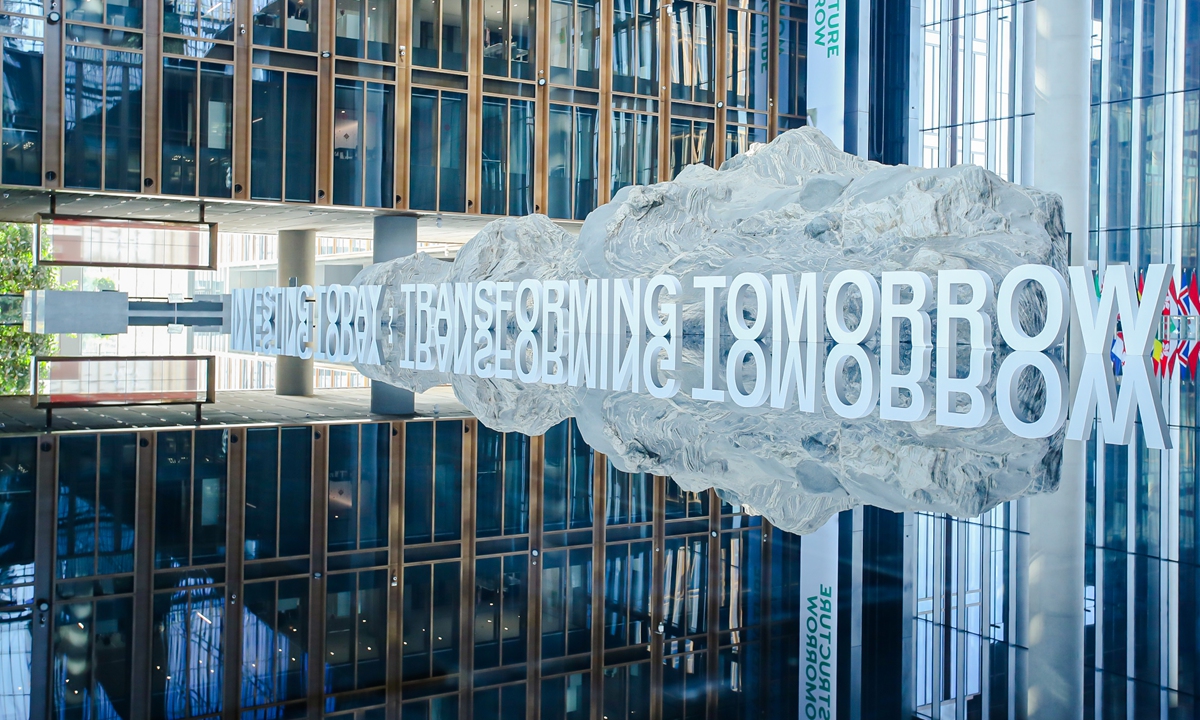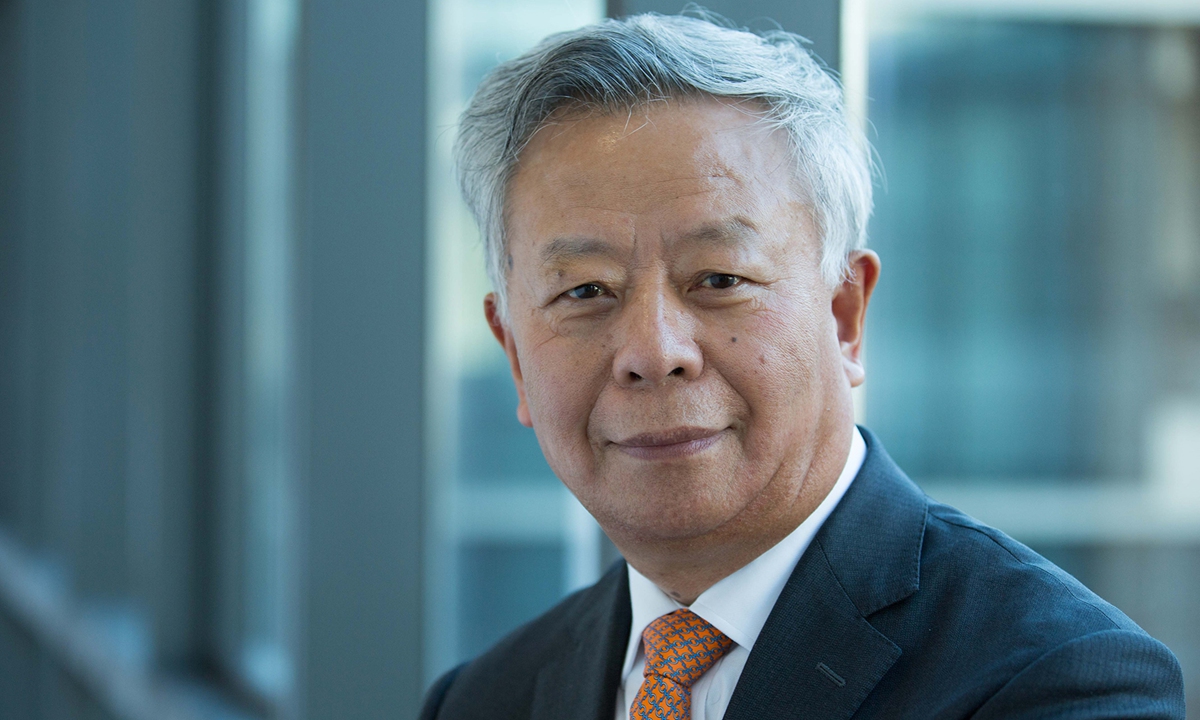
With the theme 'Investing Today, Transforming Tommorrow,' the Sixth AIIB Annual Meeting is hosted by the United Arab Emirates on October 26-28, 2021. Photo: Courtesy of AIIB
The president of the Asian Infrastructure Investment Bank (AIIB) said on Wednesday that rising investment in new energy remains one of the most effective methods to tackle climate change and the global energy crunch, days before the UN COP26 climate conference to be held in Glasgow.
"The recent energy shortage in many countries showed that investments in renewable energy and new energy should be increased. I believe the Glasgow talks will push relevant countries, including some in Europe and other developed countries, to increase funding," Jin Liqun, AIIB president and chairman of the board, told a group interview on Wednesday in Beijing.
The multilateral bank on Tuesday announced it will fully align its operations with the Paris agreement climate goals by July 1, 2023.
The bank said it expects to approve $50 billion for climate financing by 2030 - a fourfold increase in annual climate finance commitments since it started publicly reporting the numbers in 2019.

Jin Liqun Photo: AIIB
Speaking at a press conference on the sidelines of the 2021 AIIB Annual Meeting hosted by the United Arab Emirates from Tuesday to Thursday, Jin said enhancing investment in adaptation and resilience for low-income members and fostering emerging technologies to drive action on climate change are important.
As China and some countries in Europe are suffering from an energy crunch as winter is approaching, Jin said such a stressed energy supply-demand relationship, which is temporary, should not slow down countries' carbon neutrality goals, or even lead to retrogress.
"I don't think it is an energy crisis like what many media outlets hyped. We should not produce coal vigorously again due to this phenomenon," he told press on Wednesday.
"The claim saying that China again expanded coal output is prejudiced. The natural gas price spikes in Europe showed even for developed economies in the bloc, it is a difficult path to realize carbon neutrality," he said, suggesting that countries prepare sound energy policy and energy investment plans amid the transition period toward net-zero emission goals.
As of Wednesday, the bank had approved 29 energy-related projects. Coal will be eliminated in the AIIB's revised energy strategy next year, Jin said, noting that the bank has never invested in coal-related projects since its operation in 2016.
Earlier this year, the Beijing-based bank announced that it would target at least half of its climate financing in actual financing approvals by 2025. Climate-related project financing accounted for 41 percent of the bank's infrastructure portfolio last year.
The young multilateral bank has so far approved $28.97 billion for 147 projects in 31 members with India, Indonesia, Turkey, Bangladesh and China leading the tally.
A total of 104 members were approved by the bank, representing about 79 percent of the global population and 65 percent of global GDP. The application of Nigeria, the most populous country in Africa, was approved on Tuesday.





